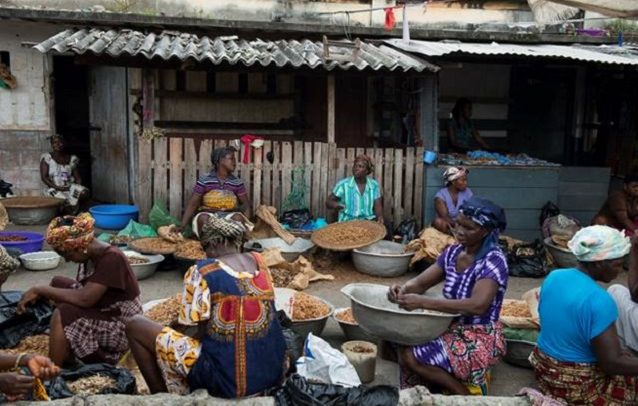
Solidaridad has launched its flagship food security campaign, the Home Gardening Initiative aimed at empowering individuals and urban communities to take control of their nutritional needs.
The initiative, which is Solidaridad’s response to the increasing food insecurity in Ghana and the growing concerns about nutrition in urban homes, is in partnership with Home Gardening Ghana, an online community with over 250,000 members.
The international civil society organization is aiming to inspire urban dwellers to take an active role in home gardening, providing them with the knowledge and resources needed to secure their nutritional needs.
To this end, it plans to provide comprehensive training in good gardening practices for vegetable growers.
The initiative which is currently being piloted in the Greater Accra region, is hoped to be expanded to other regions following its successful implementation in Accra.
This strategic approach, according to Solidaridad, forms part of its commitment to addressing food security challenges at a broader scale.
The Country Representative for Solidaridad in Ghana, Bossman Owusu, said, “With an ever-increasing urban population of which an estimated 3.6 million Ghanaians are food insecure, home gardening can play a crucial role in improving food security when individuals grow the vegetables they consume.”
Speaking, at a two-day event organized on 8 and 9 December at the Efua Sutherland Children’s Park in Accra, he noted that besides consuming healthy foods, home gardening provides therapeutic value and creates a learning opportunity for children to be familiar with plants and animals that are raised at home.
The event was held under the theme “Working together to grow safe and nutritious foods,” to launch the initiative.
It brought together home gardening enthusiasts, industry experts, development investors, farm input vendors, and service providers, and featured exhibitions, expert-led educational workshops, and panel discussions. It also provided valuable insights and learning opportunities and served as a networking platform for participants.
Crop Scientist and founder of Home Gardening Ghana, Dr Frank Ackah, said in urban vegetable production, the consumption risk is frequently linked to the use of contaminated water, soil, and chemicals.
These, he observed, pose health risks, including food-borne illnesses. “Consequently, consumers may hesitate to buy produce from urban vegetable producers, contributing to poor nutrition among households.
“A lot of people are now more conscious about their health and are now more interested in growing their vegetables. The initiative will provide a solution to concerns about vegetable sources,” he said.
The Home Gardening Initiative will also promote circular practices such as composting and recycling of domestic wastes for gardening. The holistic solution will empower individuals to contribute positively to their communities and the environment.
The Second Secretary at the Embassy of the Kingdom of the Netherlands, Naomi Tuinstra, said the initiative aligns with the Netherlands’ commitment to advancing food security and sustainable agricultural practices.
The Embassy, she mentioned, recognizes the critical role that small-scale, community-based initiatives play in enhancing local food production and ensuring access to nutritious sustenance for all.
“Ghana’s agricultural landscape holds immense potential, and this initiative served as a beacon of hope, offering tangible solutions to enhance local food production,” she intimated.
Naomi said the embassy aspires to empower individuals and communities to cultivate their sustenance to enhance food security at the grassroots level through the promotion of sustainable practices, knowledge sharing, and information dissemination.
Also, the Director of Crop Services at the Ministry of Food and Agriculture, Dr. Solomon Gyan Ansah, emphasized the importance of prioritizing home gardening to boost household food security, and nutrition, and prevent famine.
“As the Ghanaian population grows, there is the need to continuously increase food production and buffer stocks to meet the growing demand and cope with the volatilities in food production and prices,” he said.
He indicated that home gardens complement the second phase of the government’s flagship Planting for Food and Jobs programme and offer families access to fresh, nutritious produce, reducing dependence on costly and less healthy processed foods.
The Home Gardening initiative is being implemented as part of the ‘Acting Now’ programme funded by the government of the Netherlands.
The programme seeks to contribute to food system resilience, by supporting producers to build more resilient farms and food systems that are prepared for future climate change impact or economic vulnerabilities and reduce their dependence.
The post Solidaridad takes action against rising food insecurity appeared first on The Business & Financial Times.
Read Full Story


















Facebook
Twitter
Pinterest
Instagram
Google+
YouTube
LinkedIn
RSS